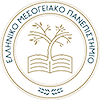Module Title: ADANCED TOPICS IN USABILITY EVALUATION
Teaching hours:
Credits: 7,5
Semester: 2nd
Instructor:
Course Description
This course provides the basic principles and practical knowledge for evaluating human-computer interfaces in terms of usability as well as guidelines for applying them to a variety of user interfaces beyond the classic PC software applications.
The students get a comprehensive understanding of usability evaluation techniques of websites, mobile and multitouch devices, gestural interfaces, as well as other non-standard hardware/software user interfaces such as automobiles, industrial and medical devices.
Moreover the notion of Usability Evaluation is considered into the broader context of User Experience Evaluation.
Indicative Syllabus
- Core Usability Concepts: Usability and User-Centered Design. Usability Guidelines, Principles and Heuristics. Levels of Usability Analysis. Measuring Aspects of Usability (Proficiency, Learnability, Efficiency, Memorability, Error Handling, User Satisfaction)
- Psychological Concepts: Cognitive Psychology and Information Processing, Dual Processor Metaphor (Norman’s Human Action Cycle), Attention and Memory
- Types of Usability Evaluation: User-centered Evaluation (Usability Experiments, Usability Testing, card sorting, eye tracking, quantitative surveys…). Expert-based Evaluation (Usability inspection methods, Heuristic Evaluation / Cognitive Walkthrough). Review-based evaluation. Model-based Evaluation. Engineering Models of Human-Computer Interaction, GOMS Models
- Special Topics in Usability Evaluation: Websites, Mobile and multitouch devices, gestural interfaces, transportation interfaces (automobiles, planes…), industrial interfaces, medical interfaces.
- User Experience Evaluation: Emotion assessment, Verbal and non-verbal measurement tools, Anticipated Experience Evaluation, PAD Emotional Scale, Geneva Emotion Wheel…
Indicative Bibliography:
- Don Norman, The Design of Everyday Things : Revised and Expanded Edition. New York : Basic Books, 2013.
- Steve Krug Don’t Make Me Think, (2014) Revisited: a Common Sense Approach to Web Usability. [Berkeley, Calif.] :New Riders, 2014.
- Vijay Kumar, (2012)101 Design Methods: A Structured Approach for Driving Innovation in Your Organization ISBN: 978-1-118-08346-8
- Jakob Nielsen Usability Engineering”, published by Morgan Kaufmann, San Francisco, 1994.
- Alan Cooper, RobertReimann, David Cronin, (2007) About Face 3: The Essentials of Interaction Design”, John Wiley & Sons Publishing,
- Jacob Nielsen, (2000) “Designing web usability – The practice of simplicity”, New Riders Publishing
- Don. Norman (1998) “The Invisible Computer”, , Cambridge, MA: MIT PressISBN 0-262-14065-9
- Class notes
